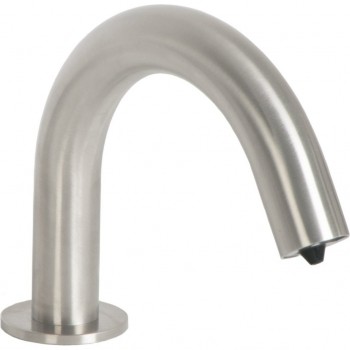Innovations in hygiene technology have transformed the way we approach cleanliness in public spaces and homes alike. Among these advancements, automatic soap dispensers and toilet valves stand out as essential tools in promoting hygiene and minimizing the spread of germs.

Understanding Automatic Soap Dispensers:
Automatic soap dispensers are a modern marvel in hygiene management. These devices utilize motion sensors to detect the presence of hands, triggering the release of an appropriate amount of soap without the need for physical contact. By eliminating touchpoints, automatic soap dispensers reduce the risk of cross-contamination, making them invaluable in public restrooms, kitchens, and healthcare facilities.
Benefits of Automatic Soap Dispensers:
Hygienic Operation: With touch-free functionality, automatic soap dispensers prevent the spread of bacteria and viruses, promoting cleaner and healthier environments.
Efficient Soap Usage: These dispensers deliver precise amounts of soap, reducing waste and ensuring cost-effectiveness in commercial settings.
User Convenience: Users appreciate the convenience of automatic dispensers, as they offer a seamless and hygienic handwashing experience.
Environmental Impact: By minimizing soap wastage, automatic dispensers contribute to sustainability efforts by conserving resources and reducing plastic usage.
Understanding Toilet Valves:
Toilet valves, particularly automatic ones, play a crucial role in maintaining cleanliness and functionality in restrooms. These valves control the flow of water into the toilet bowl, facilitating flushing and refilling processes automatically. Automatic toilet valves operate through sensor technology, detecting when a flush is needed based on usage, thus promoting water conservation and hygiene.
Benefits of Toilet Valves:
Water Conservation: Automatic toilet valves regulate water usage more efficiently than traditional flush systems, reducing water wastage and promoting eco-friendly practices.
Improved Hygiene: Touchless operation minimizes contact with potentially contaminated surfaces, contributing to better restroom hygiene and reducing the risk of germ transmission.
Maintenance Efficiency: Automatic valves often require less maintenance compared to manual systems, leading to fewer disruptions and cost savings over time.
Compliance with Regulations: Many modern buildings and facilities are required to adhere to water conservation standards, and automatic toilet valves help meet these regulatory requirements effectively.
In conclusion, the integration of automatic soap dispensers and toilet valves marks a significant advancement in promoting hygiene and efficiency in various settings. By leveraging sensor technology, these innovations offer touchless operation, enhanced hygiene, and resource conservation benefits.
Check out our website for more information on this topic.
Stainless steel bathroom accessories




Comments